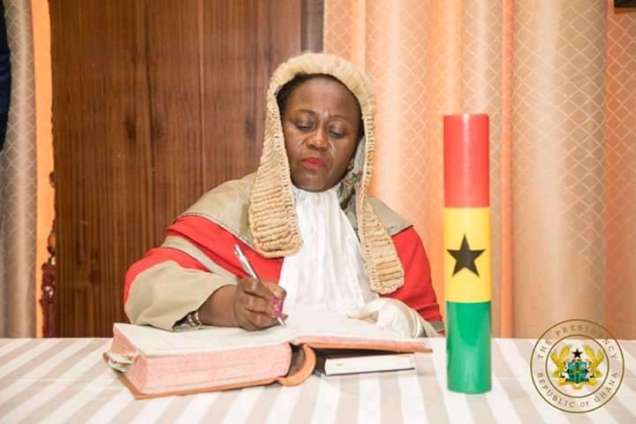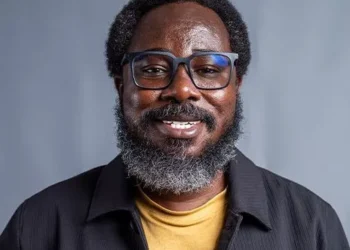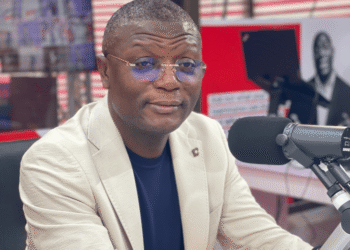Chief Justice Gertrude Araba Esaaba Sackey Torkornoo is at the center of growing public scrutiny, as a recent survey by Global InfoAnalytics has revealed that a majority of Ghanaians support her removal, sending shockwaves through the country’s political and judicial circles.
Conducted between April 7 and April 16, 2025, the poll added another layer to the ongoing national conversation about accountability and public confidence in the judiciary.
According to the data, 52% of voters support the ousting of the Chief Justice, while only 20% are against it. Another 18% expressed neutrality, and 11% had no opinion on the matter.
These numbers suggest that, whether due to perception or deeper concerns about judicial independence, public trust in the nation’s highest judicial officer appears to be significantly shaken.
“The poll also shows a majority of voters in all the regions except Ahafo and Upper East support the removal of the Chief Justice. In the Greater Accra region, 58% support her removal while 16% oppose it.
“In the Ashanti region, 37% support her removal, while 32% oppose it, and in the Central region, 51% support her removal, while 16% oppose it.”
Global InfoAnalytics
Critically, the support for her removal cuts across education levels, demolishing any assumption that this sentiment is limited to certain socio-economic classes.

Among voters with a Junior High School (JHS) education, 57% back the removal, compared to 17% who oppose it.
The figures remain consistent across other tiers: 50% of those with Senior High School (SHS) education support it, as do 54% of tertiary-educated respondents.
Even among those without formal education, 37% support the removal compared to 30% in opposition. This is no fringe opinion.
Chief Justice Debate Fuels Political Tensions
However, not everyone is convinced. The poll has stirred fierce political reactions, especially from members of the opposition New Patriotic Party (NPP).
One of the most vocal critics was NPP communicator, Deniss Miracles Aboagye, who mocked both the findings and the pollster, Mussa Dankwah, for releasing the data just before the expected announcement of a decision.
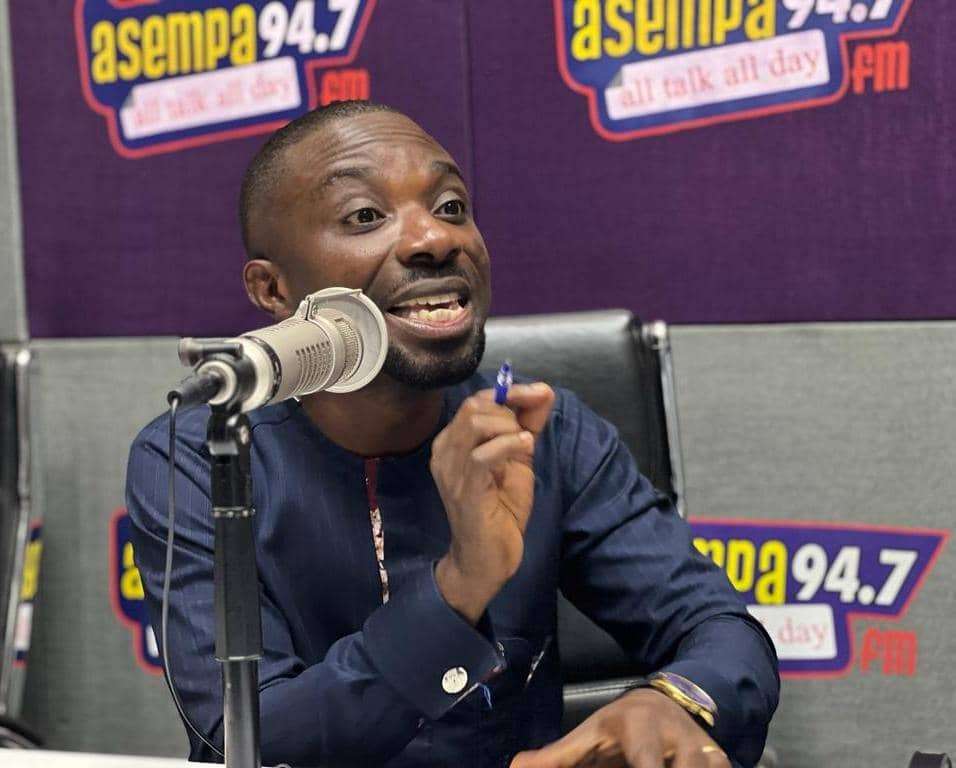
Taking to social media, Aboagye accused Global InfoAnalytics of rushing to “extrapolate, drag through, and print,” insinuating that the poll was more about shaping public discourse than reflecting it.
Yet Mussa Dankwah was swift to clap back, defending both the timing and intent of the survey. He underscored the importance of capturing public sentiment before official actions are taken, not after.
“We did not want the public to have a view after any event. So, it was right to seek their view before any decision is taken. It is just a public opinion. It does not change the prima facie case,”
Mussa Dankwah
He also pointed out what he saw as double standards from the NPP, arguing that those currently criticizing the poll would likely be celebrating its credibility if the results had aligned with their position against the Chief Justice’s removal.
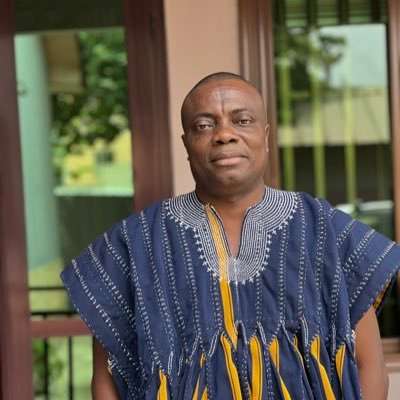
Dankwah’s defense is a timely reminder of the role of public opinion in a democracy. While it may not determine the legality of a process, it certainly speaks volumes about public confidence in institutions.
And when over half the citizenry says it’s time for the Chief Justice to go, that opinion is not easily dismissed.
This episode also sheds light on a deeper issue in Ghana’s political culture—the weaponization of polling data.
Rather than engaging constructively with public sentiment, partisans are too often quick to discredit the source when it doesn’t align with their preferences. But doing so misses the forest for the trees.
At its core, the poll suggested a crisis of confidence in the judiciary—an institution meant to embody fairness, impartiality, and the rule of law.
When the public, across education levels and regions, begins to question the credibility of that institution, leaders ought to listen—not lash out.
The fate of the Chief Justice may ultimately lie in legal hands, but her approval or lack thereof—is already being judged in the court of public opinion.
READ ALSO: Lebanon’s President Seeks Hezbollah’s Disarmament This Year

